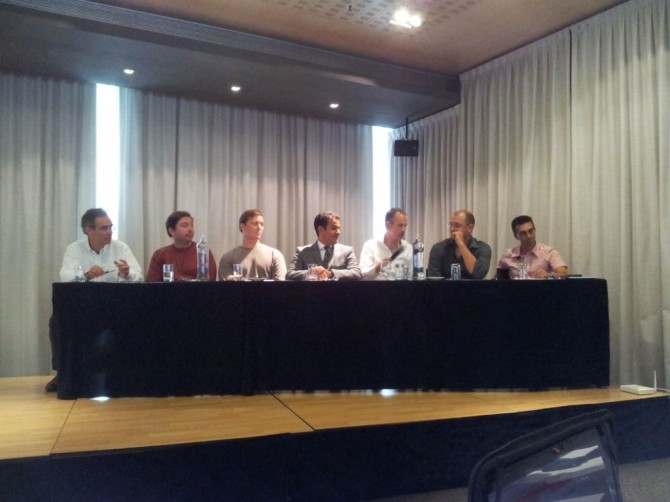The 5th edition of FXStreet’s International Traders’ Conference is still going on, but it’s safe to say after two days that it’s a great success: interesting talks, interactive live trading session
The speakers provide a perfect mix of sophisticated and straightforward technical analysis, a fundamental outlook for the dollar and last but certainly not least: some great practical insights on trade psychology – things you don’t hear everyday. Here are some highlights.
David Pegler kicked off the event with key data about timing. This is a sensitive point for many traders, that sometimes do the right thing but at the wrong time. His data about times of reversals and times when the markets are tired were valuable to the attendees.
Richard Olsen, a veteran market participant (one of OANDA’s founders) spoke about what moves markets: passive herding of positions. This often has more impact than fundamentals and technicals.
Dr. Walter Peters came all the way from Australia to discuss his technical methods, which include no indicators at all. Readers of Forex Crunch are familiar with the approach of the minimalism in technical analysis seen here. So, I could certainly relate to his approach.
On the second day, came a fascinating lecture by Steve Ward about trading psychology. Ward has experience from sports psychology, which is quite similar to the pressures that traders undergo. With the help of a volunteer, he showed how expectations of a stressful event can immediately distort the person’s approach. Knowing how to “keep the chimp in the cage” is critical to success in trading. Everybody knows the importance of staying calm in the markets, but many often disregard it.
Ed Ponsi, a well known speaker gave a very interesting talk about the direction of the dollar and the huge power of the Federal Reserve. When Bernanke is sometimes treated as a “god”, his speech was a good reminder of the blindness of policymakers before the crisis. Ponsi mentioned the correlation between the dollar and oil, something that is in play right now, at the time of writing. He also reminded everybody about huge hyperinflation in the past and hinted that it could happen in the US. Is gold the solution? Not necessarily so – Ponsi provided original investment options in case money becomes worthless. He discussed the disadvantages of having a weak currency at a time when central banks are racing to the bottom.
I personally disagree that a weak currency is bad – Germany would have had a much stronger currency if it were not for the euro (pulled down by many countries), and its exports would not boom. It would have stayed the “sick man of Europe”. Anyway, Ponsi’s talk was definitely interesting and mind provoking.
Ron William, who recently went independent (good luck!) was the last speaker, and he discussed candlestick patterns. His insights about market cycles and timing were interesting. His speech was interactive, and included using some “collective wisdom” of the attendees.
Apart from the talks in front of the audience, plenty of time was dedicated to live trading sessions in small groups. This is the key advantage of the conference: it allows much more time for interaction with the experts and some hands on stuff. Large conferences don’t really allow time for questions, and this focused event allowed any participant to dig deeper and expand his knowledge.
There is still one day left, which includes more live sessions and panel discussions.
You can read more about the speakers here, see pictures here, and follow live updates on Twitter here.
Full Disclosure: I am a guest of FXStreet in the conference.

